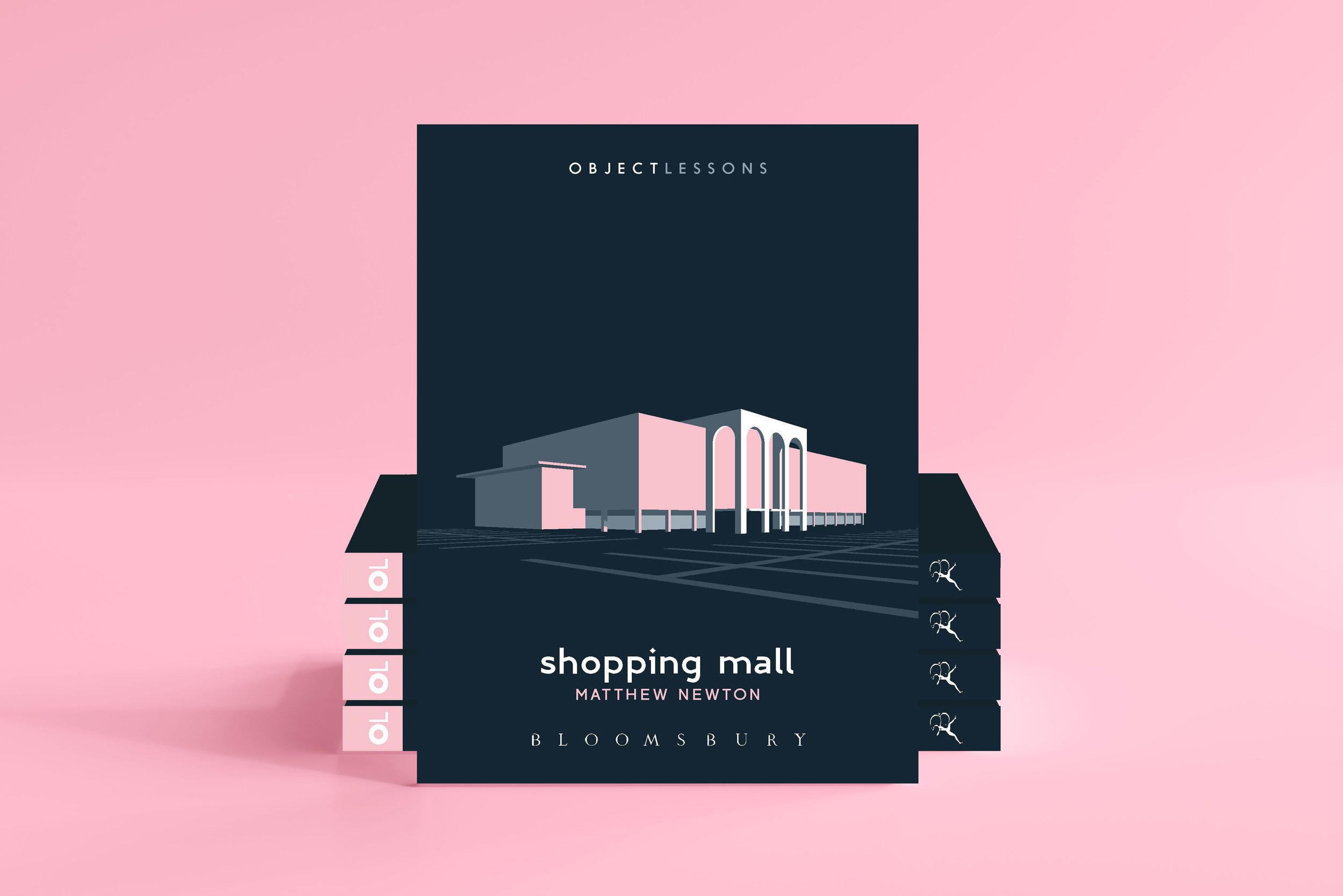
About the Book
The mall near Matthew Newton’s childhood home in Pittsburgh, Pennsylvania, was one of the state’s first enclosed shopping malls. Like all malls in their heyday, this one was a climate-controlled pleasuredome where strangers converged. It boasted waterfalls, fish ponds, an indoor ice-skating rink larger than Rockefeller Center’s, and a monolithic clock tower illuminated year-round beneath a canopy of interconnected skylights. It also became the backdrop for filmmaker George A. Romero’s zombie opus Dawn of the Dead. Part memoir and part case study, Shopping Mall examines the modern mythology of the mall and shows that, more than a collection of stores, it is a place of curiosity, ritual, and fantasy.

Praise from Authors
“For Matthew Newton, the American mall is a symbol of white flight, aspirational fantasy, and the shop-till-you-drop consumerism of the late 1980s. But his love for the peculiar and often unsustainable relic of retail architecture is what draws you in. He grew up with the mall—his mother worked in customer service—and his roaming brought calmness to his anxious teenaged years. These are striking tales of suburban isolation in which Newton reveals life from the employee side of the counter to the idealistic architects’ designs. Above all, Shopping Mall takes an aging mainstream phenomenon and makes it personal and present.”
Yona Harvey, author of Hemming the Water and Black Panther and the Crew
* * *
“Shopping Mall is an analytical book-length personal essay exploring the shopping mall as a shared American experience, focusing on the author’s personal relationship with our own Monroeville Mall. It makes present a world that we as Pittsburghers know has since vanished.”
Stewart O’Nan, author of A Prayer for the Dying and Henry, Himself
* * *
“This series really gets better and better. Newton linking his own life to the malls he knew growing up, and telling not only his story, but the fall of a very American institution, is engaging and profound.”
Jason Diamond, author of Searching for John Hughes and The Sprawl

Local Praise for Shopping Mall
“In exploring a personal connection to the mall, Newton reveals a good bit about himself. The memoir elements of the book are eloquent and intimate, detailing his struggles with depression and anxiety. They also provide a reader with a walking bridge, an avenue for connection to the mall itself.”
Jody DiPerna
Pittsburgh City Paper
“Shopping Mall is for anyone who enjoys intelligent, thoughtful writing. It is surprisingly emotional for a book nominally about an impersonal space.”
Kristofer Collins
Pittsburgh Magazine
“Shopping Mall is part of the Object Lessons series from Bloomsbury [and] therefore has some characteristics of an academic essay born of a writing prompt. But in Newton’s hands, it’s anything but dry academia.”
John Allison
Pittsburgh Quarterly
Publisher’s Weekly
“The best passages are those about the actual idea of the mall, designed by figures such as the Viennese Victor Gruen as a new sort of civic space that could replace the lost town square in a post-WWII America reshaped by the rise of suburbia. Newton wraps up with evocative reflections on instances of violence in shopping malls and questions about a possible renewal for these spaces, the popularity of which has flagged since their heyday nearly 30 years ago. To put it into the vernacular, this book about the mall is at its best when it’s, like, totally about the mall.”

PopMatters
“By leaving a trail of bittersweet crumbs of nostalgia, Newton spares the reader from the doom that others have cast over this cultural change. Rather than focusing on a dystopia of self-absorbed individuals doing their shopping and finding entertainment online, we are able to warmly recall the shopping mall and the life ways in which it played a central role, not only for consumption but also for construction of self and community.” —Linda Levitt

Shelf Awareness
“Shopping Mall doesn’t track much of the metamorphosis between Gruen’s plans and the modern iteration, assuming readers can fill in the blanks as to why the architect’s utopian vision was ultimately undercut. But, interestingly enough, Newton doesn’t entirely agree with Gruen, either. His own experience of the mall gives proof to its importance in community life, both good and bad, and he elucidates this importance through stories of his childhood and retrospectives on how malls are used today. That perspective gives Shopping Mall a much-needed position beyond ‘malls are perversions of community life through capitalism.’ He isn’t interested in defending shopping malls, but in showing how his—and many other people’s—lives would be entirely different without them.” —Noah Cruickshank
On the Radio
-

Dear Shopping Mall
Escape with us to the shopping mall, as Matthew Newton and the Arts & Letters team craft a nostalgic love letter to the malls of America, with special focus on the Monroeville Mall in Pittsburgh, Pennsylvania.
-

Store No More: A Retail Reality Check
The retail industry is on shaky ground. Since 2001, department stores have lost 18 times more workers than coal mines have. Some of the biggest names are selling their prime real estate, or lying empty. Others are reinventing their consumer strategies to stay competitive with online sellers.

Reader Reviews
“Newton artfully blends memoir, cultural history, and sociology in this book o' malls. I love the organization into three parts (childhood, adolescence, and adulthood) that delightfully merge mall history w/ the author's experience of malls at those ages. I was actually getting a bit misty at points while reading a nonfiction book about malls, so that should say something!”
Claire, Goodreads
* * *
“Somewhere out there, a historian must have written a history of the American shopping mall — something full of names and dates and other history book things. This book is not that book, but it has enough of that kind of thing so that I feel better informed about the subject. History is only about 1/3 of the text. The rest is social commentary and stories from the author’s life. Much of what he says is very relatable and will strike a chord with anyone who has watched a mall that played an important part in their life die. This book is a beautifully written eulogy for all of those malls. Well worth the read.”
Jordan, Goodreads
* * *
“The book's greatest strength is Newton's clear love for the mall and his struggle with that love. He writes about shopping malls with the feeling of someone reflecting on and questioning the more problematic traits of a beloved relative. The book touches on race, class, deindustrialization, consumerism, the digital revolution and more, but always grounded with emotion and personal narrative. A distinctly American and timely book, it is nostalgic while questioning nostalgia. I highly recommend.”